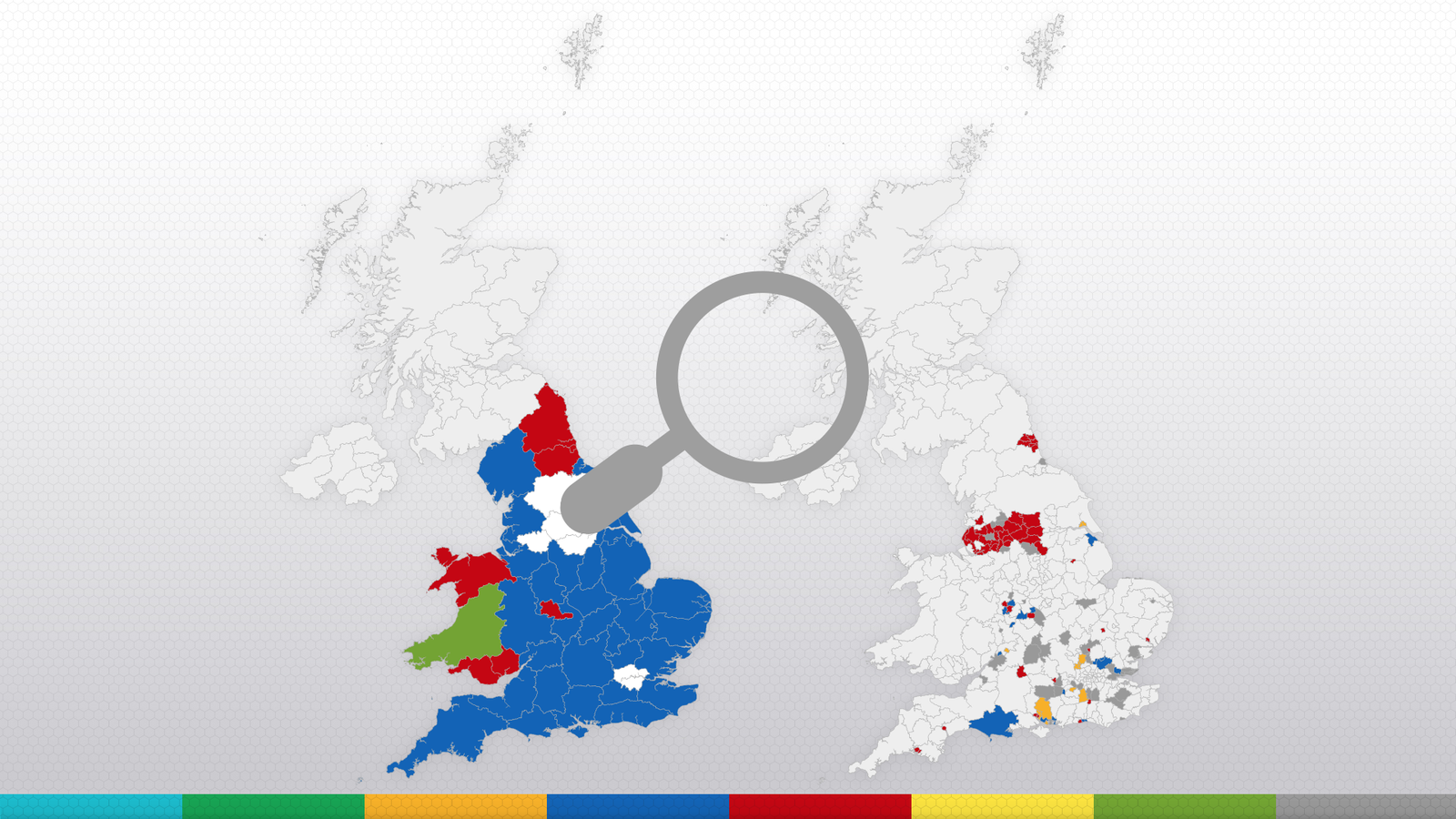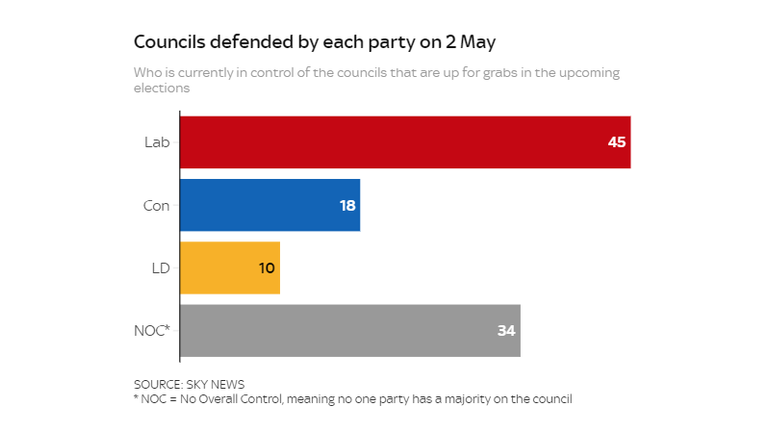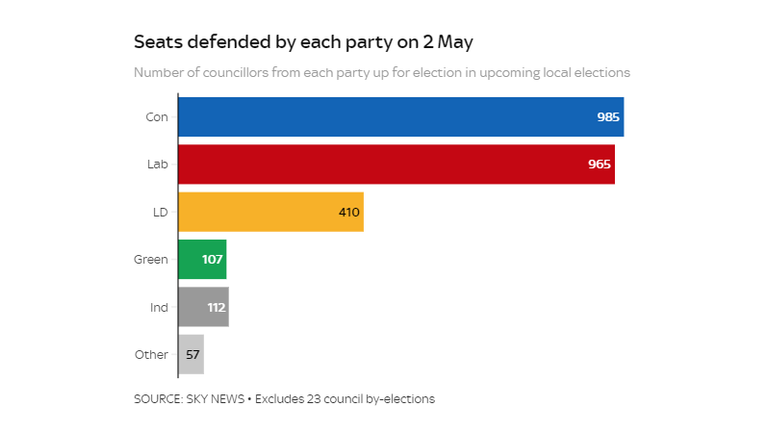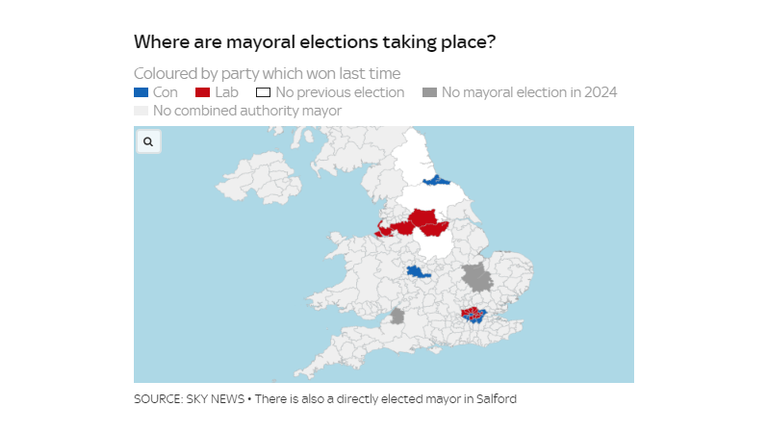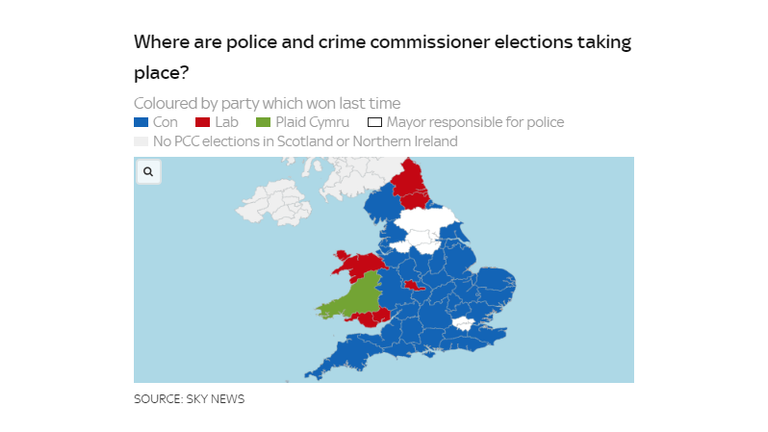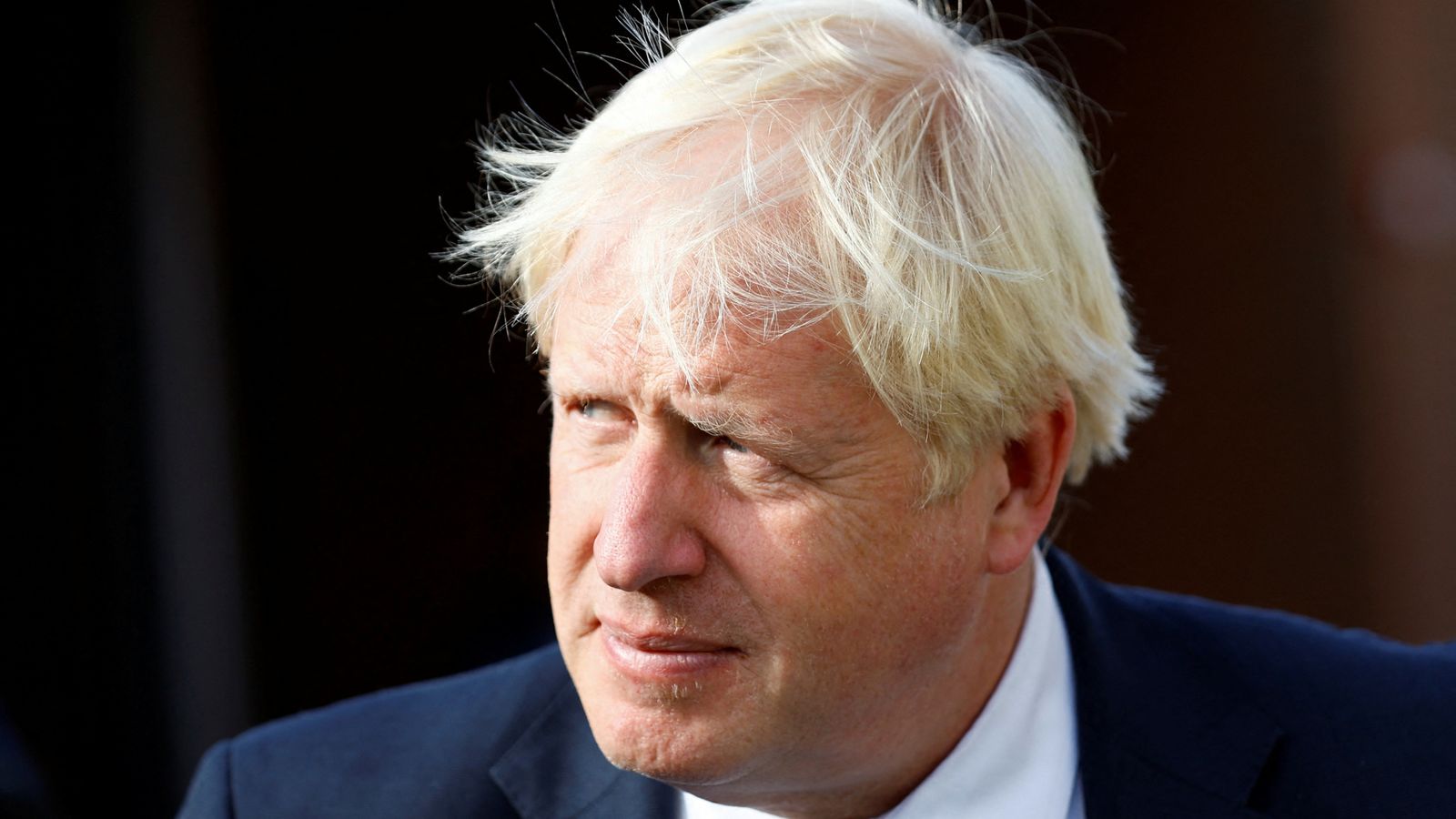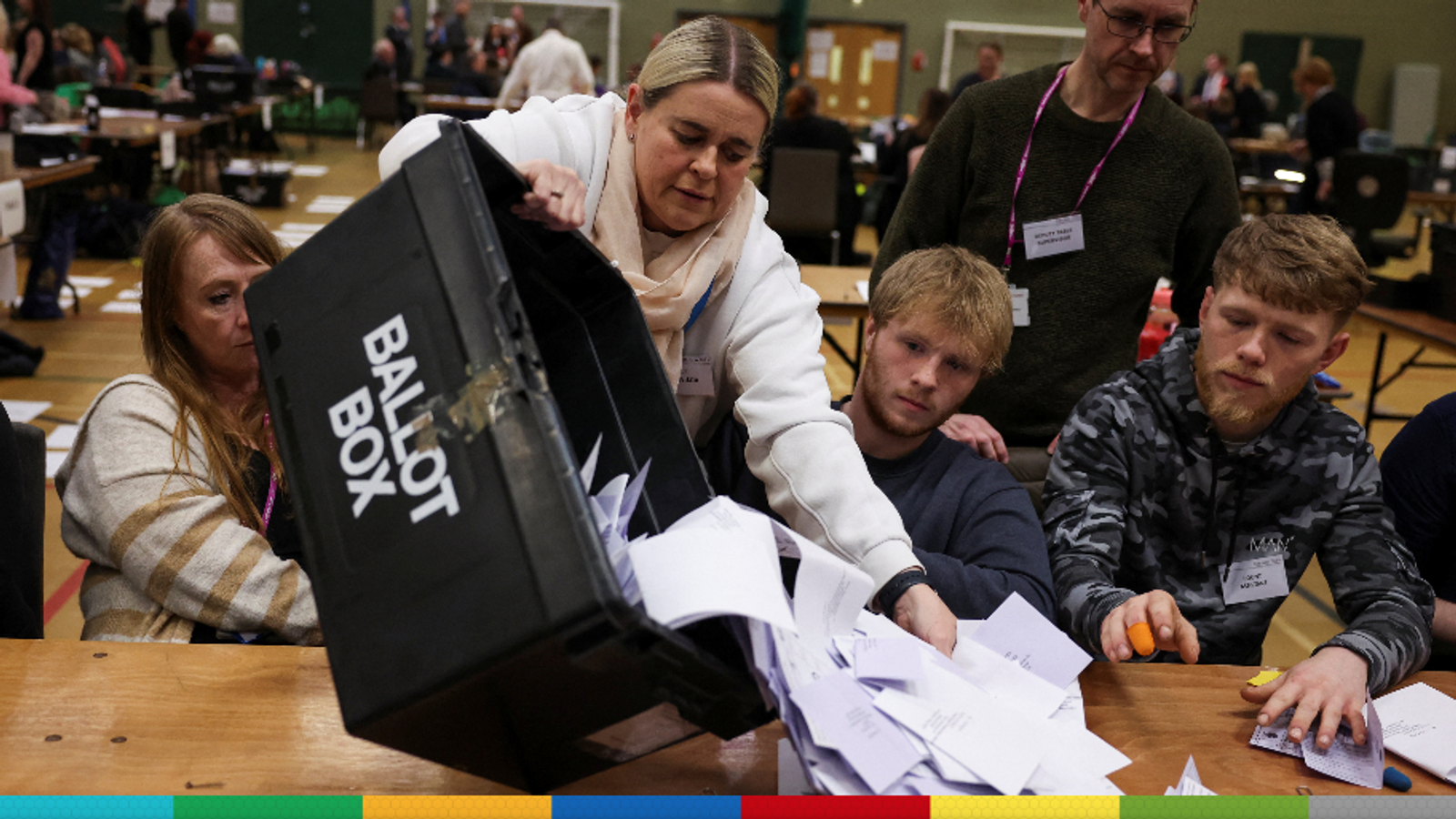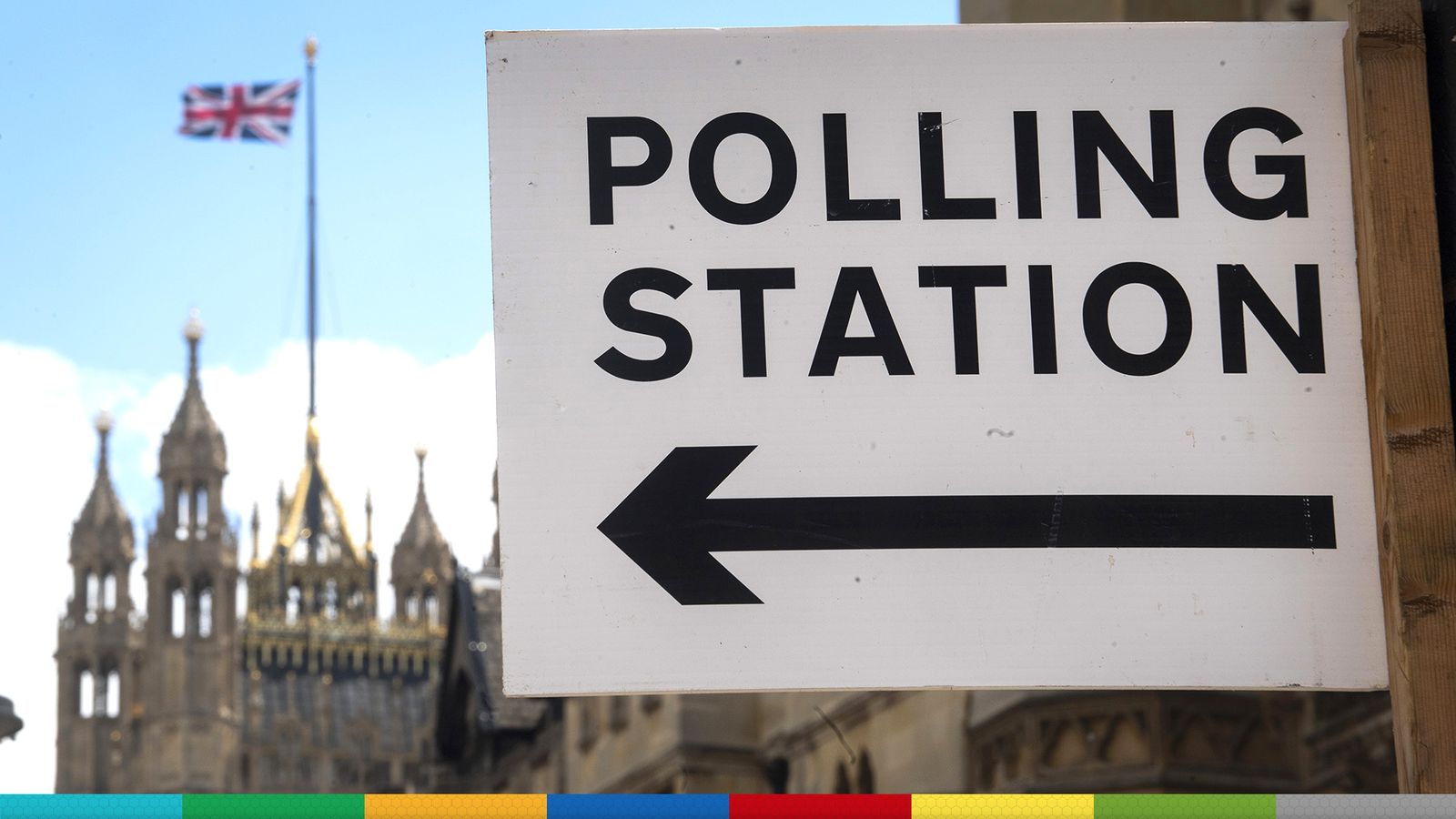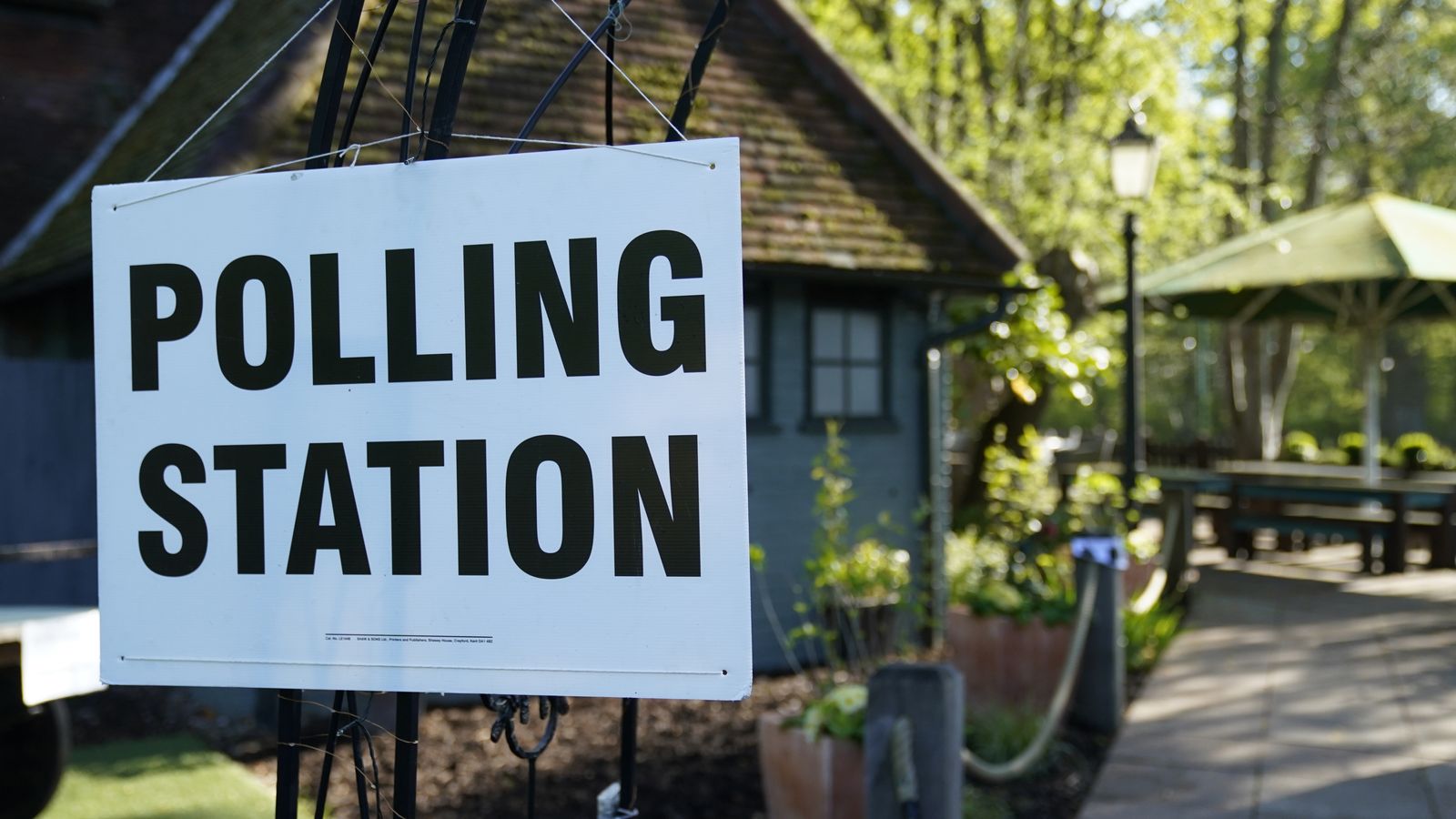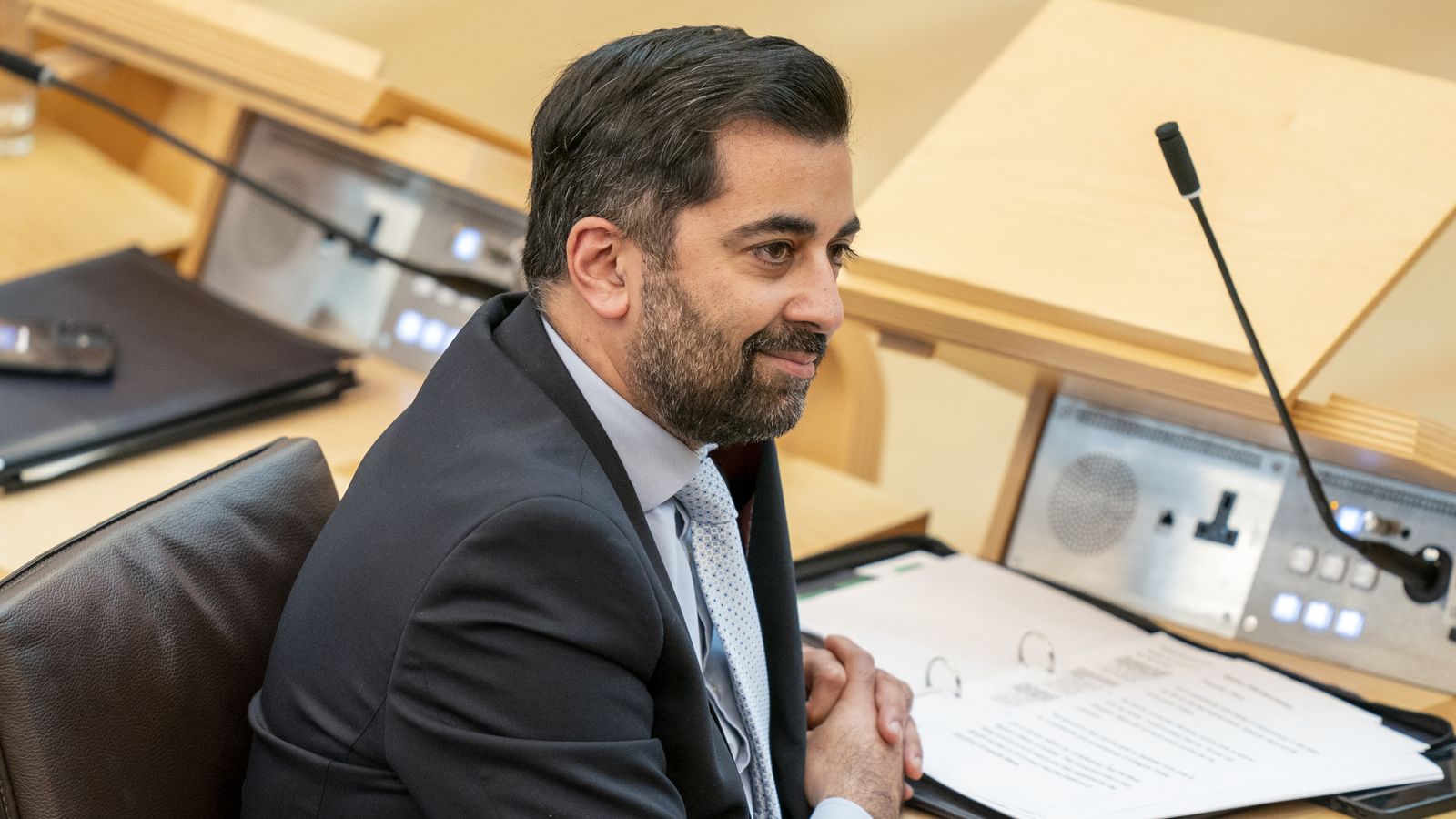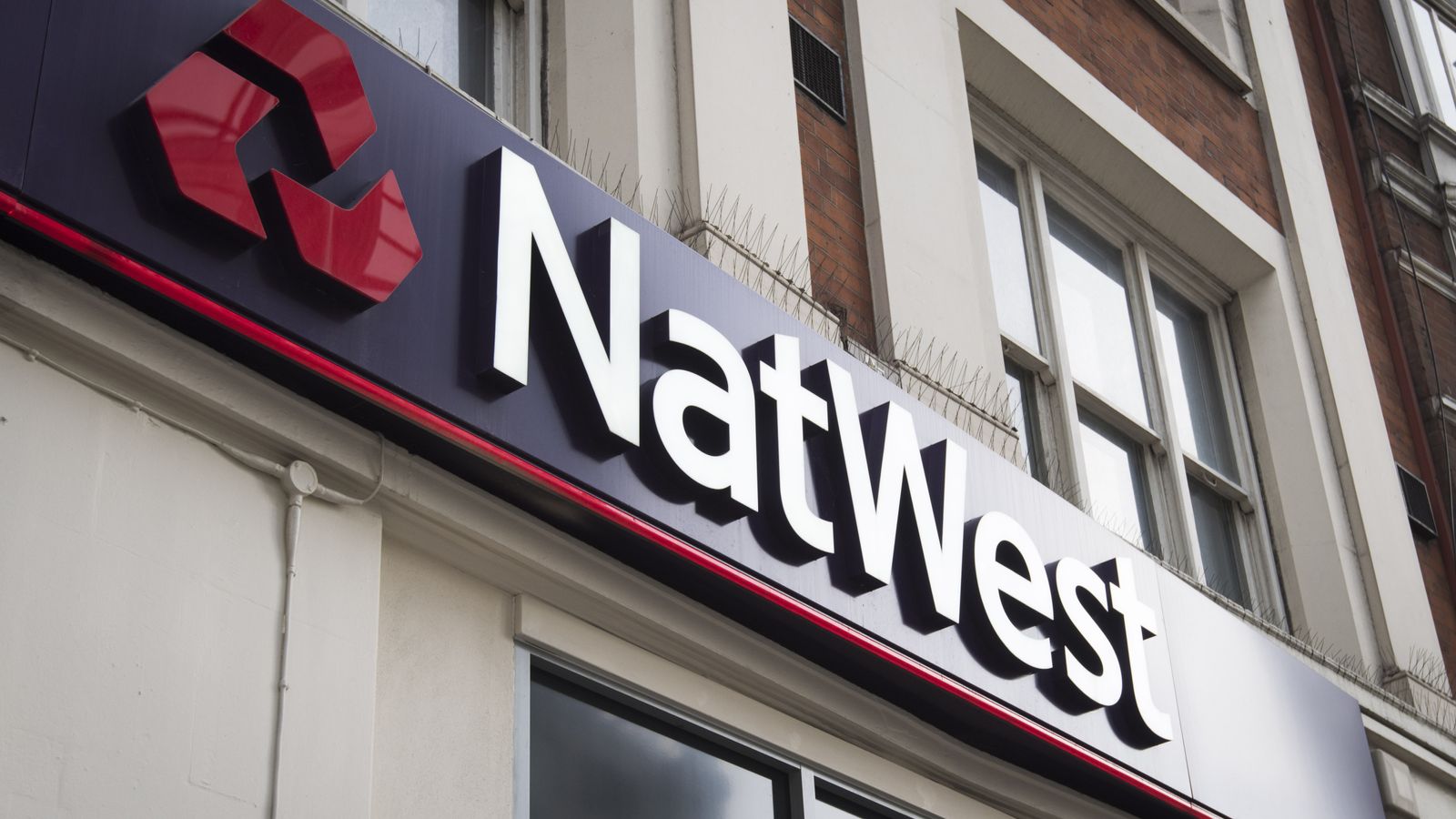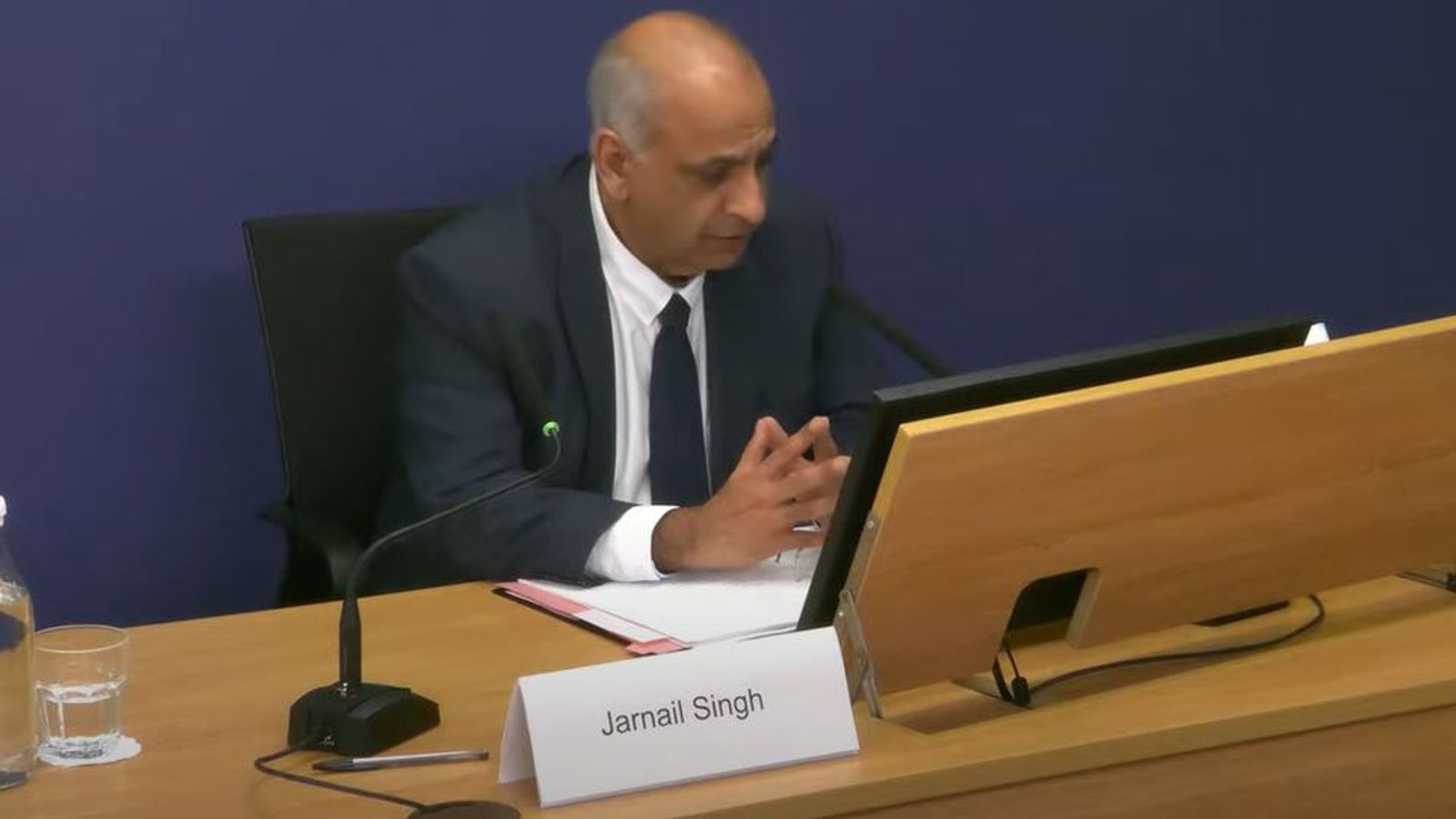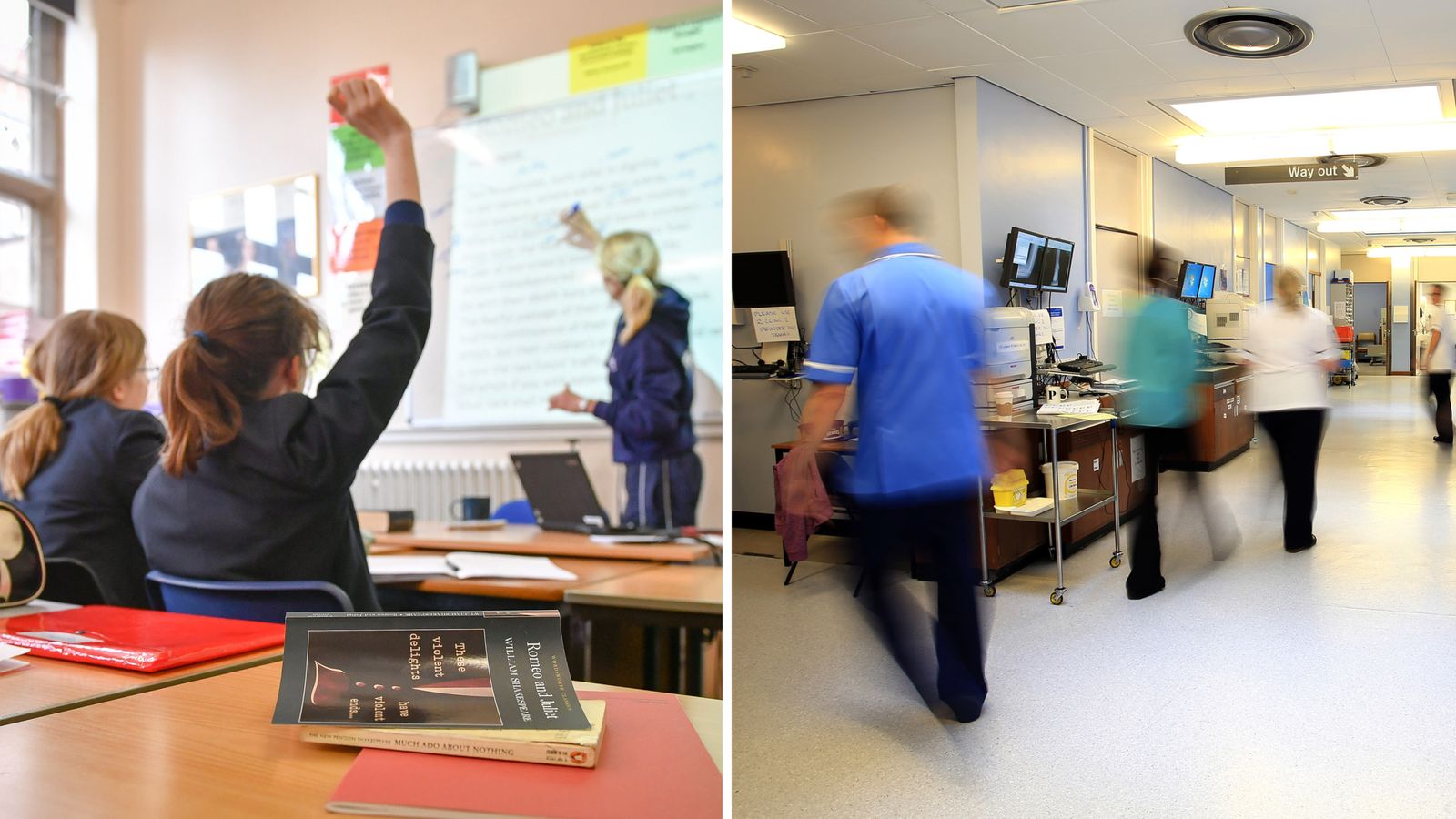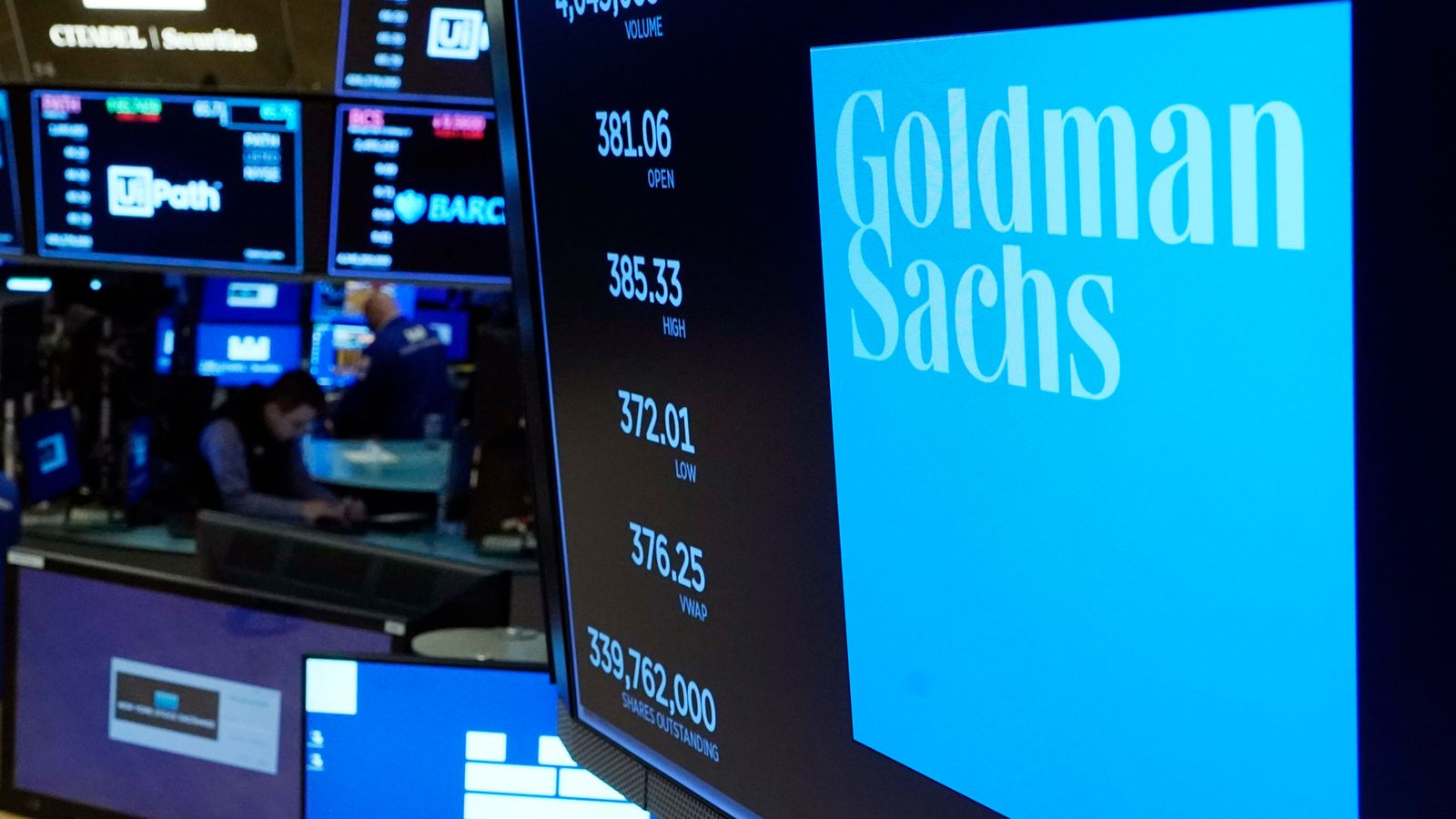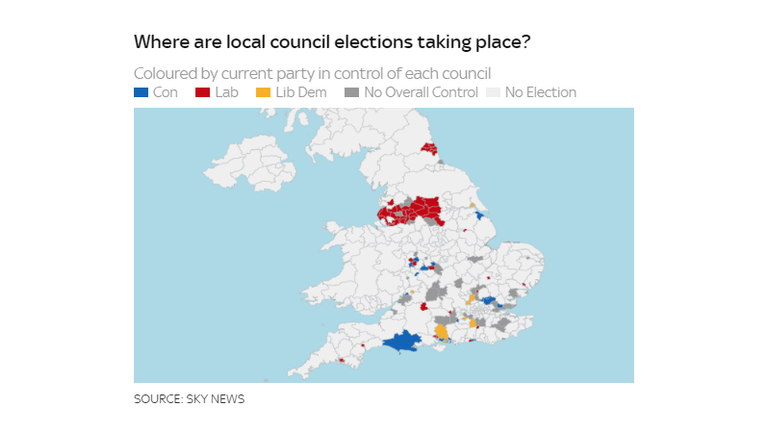
Everyone in England and Wales will have some sort of vote to cast on 2 May, with elections for local councillors, mayors, police and crime commissioners – and even one MP – taking place.
See what’s happening in your area with our postcode lookup:
Council elections
There are more than 2,600 council seats up for grabs in 107 council elections.
More than half of the elections are in district councils – which look after services such as bin collections, parks and planning – leaving county councils to fulfil the remaining responsibilities including road maintenance and schools.
There are seats up in 31 metropolitan boroughs. They look after a similar range of services to district councils in metropolitan counties, such as Manchester, Leeds and Sheffield in the metropolitan counties of Greater Manchester, West Yorkshire and South Yorkshire.
There are also elections in 18 unitary authorities, for example Dorset and Bristol. Unitaries cover all council services that district and county councils do together.
Here’s where the council elections are and who’s defending what. Click on the drop-down to see where the different types of each council are:
Labour and the Conservatives are defending a similar amount of council seats this time around – 985 Tory seats to Labour’s 965. But Labour are defending council control in more areas – 45 versus just 18 Conservative-held areas.
What happened last time?
The last time these seats were voted for in 2021 – after a delay of a year due to COVID – there were 248 Conservative gains and 264 Labour losses. The Greens added 47 councillors while the Lib Dems and Others/Independents lost a handful each.
There were also gains for the SNP in Scotland and Labour in Wales in devolved parliament elections that aren’t up for grabs this year, suggesting that the parties managing their nations’ COVID response were rewarded at the polls.
The Conservatives also won a by-election in Hartlepool, which had been held by Labour since 1974, on the same day.
It was just the third time since the Second World War that a governing party had gained a seat in a by-election and the 16-point swing was the largest a governing party has ever secured.
That was Sir Keir Starmer’s first by-election as Labour leader. Since then the party have made seven gains at by-elections and risen to a 20-point lead in the polls.
So Labour will be hoping to translate that change in popularity to electoral success and regain a few of those councils they lost
It would consolidate on their council election gains from last year that made them the biggest party of local government for the first time in more than 20 years.
Mayoral elections
Voters in England will also choose 10 metro mayors next month, including in the East Midlands, North East and York and North Yorkshire for the first time.
There will be a mayoral election in London, currently held by Labour with Sadiq Khan, where voters will also have a chance to select 25 London Assembly members representing 14 constituencies.
In terms of mayors, the Conservatives currently hold Tees Valley and the West Midlands, through Ben Houchen and Andy Street respectively. Labour hold South Yorkshire, West Yorkshire, Greater Manchester and the Liverpool City Region.
The 10 mayors will represent almost half of the population of England.
It will be the first time since the introduction of these mayors in 2017 (London has had a mayor since 2000) that the voting system has changed to First Past the Post – the same system used for most other elections in the UK.
Previously there was a system that allowed second preference votes which would be reallocated to the two leading candidates after a first round of counting.
There is also a directly elected local mayor in Salford council.
Blackpool South by-election
Voters in Blackpool South don’t have any council elections this year, but there is the matter of a new MP to select.
Conservative Scott Benton resigned from parliament after undercover journalists posing as gambling industry investors filmed him offering to lobby ministers in exchange for money.
That triggered a recall petition which he lost, and so was forced to resign as an MP.
The seat had been in Labour hands since 1997, but was won by Benton in 2019 with a swing of 9.3 percentage points for a majority of 11.3%.
A resurgent Labour has achieved swings high enough to overturn that majority eleven times since 2021.
Police and crime commissioner elections
Everyone in Wales gets to vote for a new PCC on 2 May as there are votes for all four of the Welsh police force areas – North Wales, South Wales, Gwent and Dyfed-Powys.
There are also PCC elections almost everywhere in England. In London, Greater Manchester, and North, West and South Yorkshire, the mayor takes responsibility for policing. There are direct elections in 34 other police force areas.
PCCs are elected to hold chief constables to account, representing the communities they serve.
They are responsible for “the totality of policing” in an area, and aim to cut crime and deliver an efficient police service.
They don’t have a role in the day-to day running of the police, but can appoint and dismiss the chief constable, set the force budget and objectives, and bring together community safety and criminal justice partners to make sure local priorities are joined up.
The Conservatives have historically performed well at PCC elections, winning 30 of 35 in England last time out.
Turnout averaged at 33.2%, but was higher in Wales than England – this may have been because Welsh people were voting for the Senedd at the same time while not all English people had concurrent local council elections.
The Data and Forensics team is a multi-skilled unit dedicated to providing transparent journalism from Sky News. We gather, analyse and visualise data to tell data-driven stories. We combine traditional reporting skills with advanced analysis of satellite images, social media and other open-source information. Through multimedia storytelling, we aim to better explain the world while also showing how our journalism is done.

